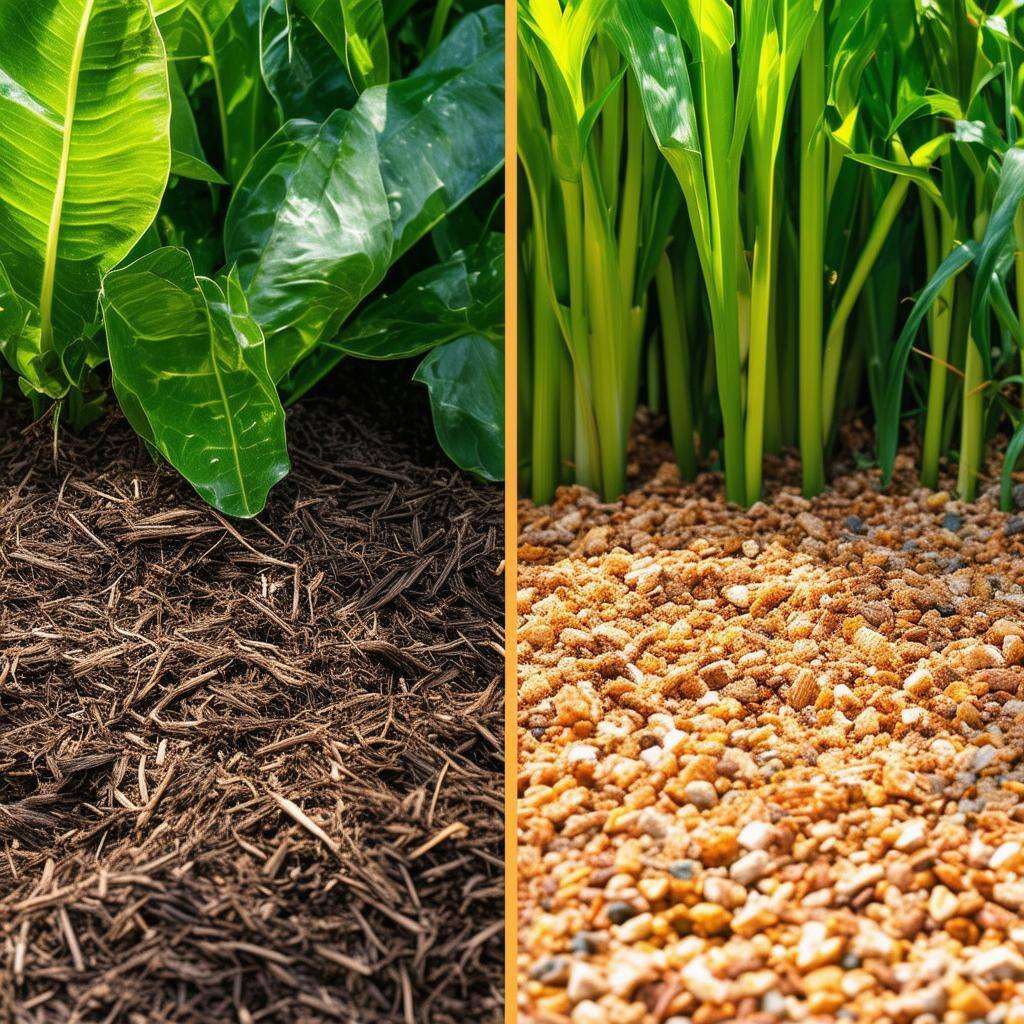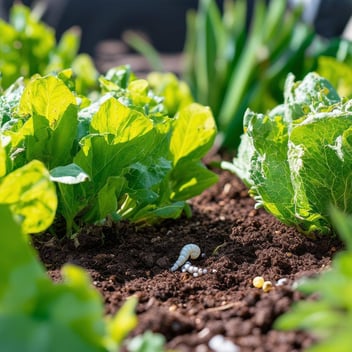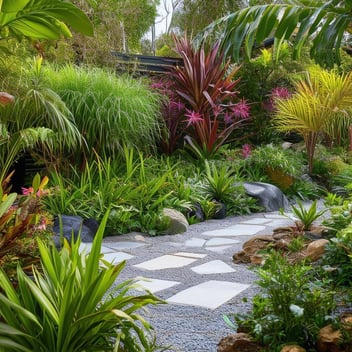Organic vs. Inorganic Mulch: Which is Best for SEQ Gardens?
Introduction
In the lush, subtropical landscapes of South East Queensland (SEQ), mulching stands as a cornerstone of effective gardening. The choice between organic and inorganic mulch significantly influences soil health, plant vitality, and overall garden aesthetics. Selecting the appropriate mulch type is paramount for cultivating a thriving garden in SEQ's unique climate.
Organic Mulch
Definition and Common Types
Organic mulch comprises natural materials that decompose over time, enriching the soil. Common types include sugar cane mulch, lucerne hay, wood chips, and leaf litter.
Benefits in SEQ's Subtropical Climate
Organic mulches offer numerous advantages:
-
Soil Enrichment: As they decompose, organic mulches release nutrients, enhancing soil fertility and structure.
-
Moisture Retention: They reduce evaporation, maintaining soil moisture—a critical factor during SEQ's hot summers.
-
Temperature Regulation: Organic mulches insulate the soil, stabilizing temperatures and protecting plant roots from thermal extremes.
Potential Drawbacks
However, organic mulches have certain limitations:
-
Frequent Replenishment: Due to decomposition, they require regular replacement to maintain effectiveness.
-
Pest Attraction: If not properly managed, they can harbor pests or diseases.
Inorganic Mulch
Definition and Common Types
Inorganic mulch consists of non-decomposing materials such as pebbles, gravel, landscape fabric, and rubber chips.
Benefits in SEQ Gardens
Inorganic mulches provide distinct advantages:
-
Durability: They do not decompose, offering long-term coverage with minimal maintenance.
-
Weed Suppression: Effectively inhibit weed growth by creating a physical barrier.
-
Aesthetic Appeal: Available in various colors and textures, they enhance garden design.
Potential Drawbacks
Despite their benefits, inorganic mulches present challenges:
-
Lack of Soil Enrichment: They do not contribute nutrients to the soil.
-
Heat Retention: Some materials can absorb and radiate heat, potentially stressing plants.
Comparative Analysis
Nutrient Contribution to Soil
Organic mulches decompose, enriching the soil with nutrients and improving its structure. In contrast, inorganic mulches remain inert, offering no nutritional benefits.
Longevity and Maintenance Requirements
Inorganic mulches provide long-lasting coverage with minimal upkeep. Organic mulches, while beneficial, necessitate periodic replenishment due to decomposition.
Impact on Soil Temperature and Moisture Retention
Both mulch types aid in moisture retention. However, inorganic mulches, particularly stones, may elevate soil temperatures, which can be detrimental in SEQ's hot climate.
Aesthetic Considerations
Inorganic mulches offer a polished, uniform appearance, aligning with certain landscape designs. Organic mulches impart a natural, rustic charm, complementing informal garden styles.
Factors to Consider When Choosing Mulch
Specific Plant Needs
Assess the requirements of your plants. Nutrient-demanding species benefit from organic mulches, while drought-tolerant plants may thrive with inorganic options.
Garden Design and Aesthetics
Align mulch choice with your garden's design ethos. Inorganic mulches suit contemporary layouts, whereas organic mulches enhance traditional or cottage gardens.
Maintenance Commitment
Consider your willingness to perform maintenance. Organic mulches require regular attention, while inorganic mulches offer a low-maintenance alternative.
Environmental Impact
Organic mulches are biodegradable and environmentally friendly. Inorganic mulches, depending on the material, may have environmental drawbacks, such as non-biodegradability.
Recommendations for SEQ Gardeners
Best Practices for Using Organic Mulch
-
Application: Apply a 5–10 cm layer, keeping mulch away from plant stems to prevent rot.
-
Replenishment: Refresh mulch layers annually to sustain benefits.
Best Practices for Using Inorganic Mulch
-
Installation: Place over landscape fabric to enhance weed suppression.
-
Monitoring: Regularly check soil moisture and temperature to ensure plant health.
Situational Recommendations Based on Garden Type
-
Vegetable Gardens: Organic mulches are ideal for adding nutrients and improving soil health.
-
Decorative Landscapes: Inorganic mulches can provide a clean, aesthetic finish with minimal upkeep.
Conclusion
Selecting the appropriate mulch for SEQ gardens involves balancing soil health, plant needs, aesthetic preferences, and maintenance capabilities. By understanding the distinct attributes of organic and inorganic mulches, gardeners can make informed decisions that foster vibrant and resilient landscapes.




